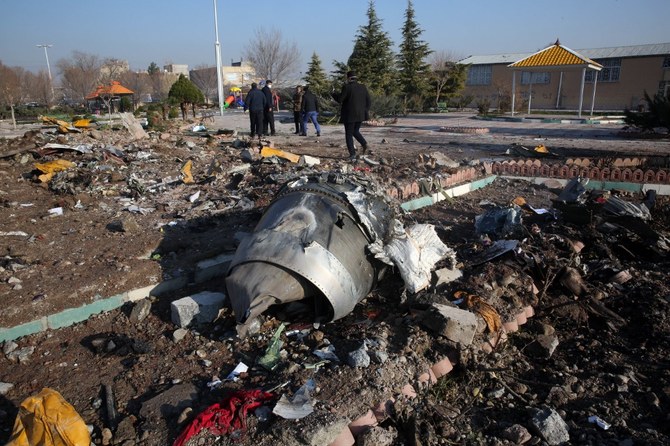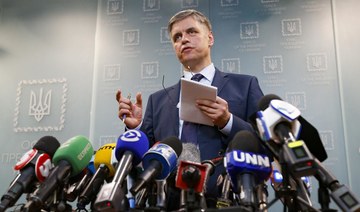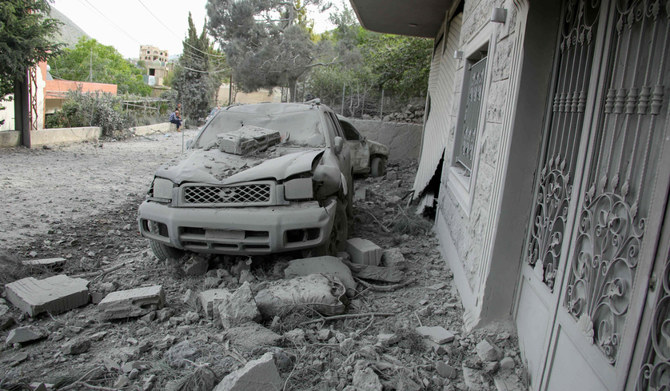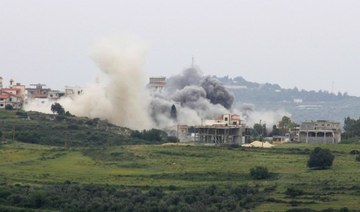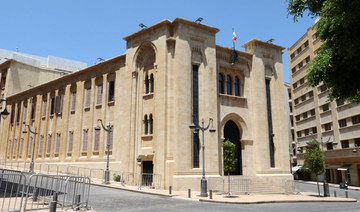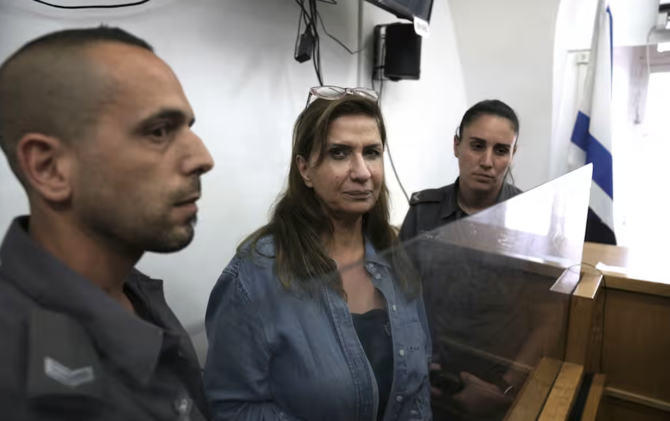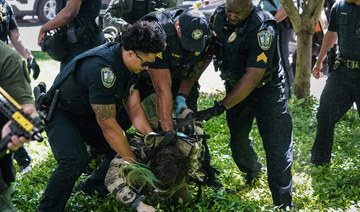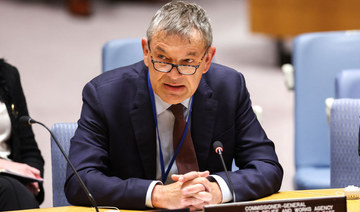WASHINGTON: New video footage has emerged showing two Iranian missiles tearing through the night sky and hitting a Ukrainian passenger plane, sending the aircraft down in flames and killing all 176 passengers and crew on board.
The projectiles were fired 30 seconds apart and explain why the plane’s transponder was not working as it hurtled to the ground — it was disabled by the first strike, before being hit by a second, said the New York Times, which published the verified security camera footage Tuesday.
The blurry film, shot from a rooftop in a village four miles from an Iranian military site, shows the Kiev-bound plane on fire and circling back to Tehran’s airport, the Times said. Minutes later, the aircraft exploded and crashed.
Meanwhile, Ukraine’s prosecutor’s office and security service have asked Iranian authorities to give Kiev black boxes from the crashed Ukrainian plane, the prosecutors office said on Wednesday.
Ukraine is trying to establish whether Iran will hand over the black boxes from a Ukrainian passenger plane that crashed in Iran last week, a senior Ukrainian prosecutor was quoted by Interfax Ukraine as saying on Wednesday.
An Iranian investigator was meant to visit Ukraine on Wednesday to check whether a Ukrainian laboratory could decode the black boxes but did not arrive, said Polina Chyzh, head of the Department of International Legal Cooperation and Asset Recovery at the Prosecutor General’s office.
Chyzh said Iran had not officially answered a Ukrainian request for access to the black boxes, prompting Ukraine to make a second request.
A top Ukraine security official said this week that a senior investigator from Iran was expected to visit Ukraine soon and determine whether a Ukrainian laboratory would be suitable to work on the black boxes.
Iran had for days denied Western claims that the Boeing 737 had been downed by its missiles.
Tehran came clean on Saturday when Revolutionary Guards aerospace commander Brig. Gen. Amirali Hajjizadeh acknowledged a missile operator had mistaken the Ukraine International Airlines plane for a cruise missile and opened fire.
The incident happened when Iran’s armed forces were on heightened alert after launching a volley of missiles at Iraqi bases hosting US troops in retaliation for the killing of top general Qasem Soleimani on January 3.
Iran has struggled to contain the fallout over its handling of the air disaster and the tragedy has seen hundreds of angry protesters, most of them students, take to the streets.
New videos circulating on social media purported to show fresh protests on Tuesday evening at universities in Tehran, along with clashes between students and Basij militia loyal to the establishment.
It was not possible to immediately verify the videos.
Earlier, AFP correspondents said around 200 mainly masked students gathered at Tehran University and were locked in a tense standoff with youths from the Basij.
Kept apart by security forces, the groups eventually parted ways.
Around 30 people have been arrested in the protests over the air disaster, according to judiciary spokesman Gholamhossein Esmaili.
On Tuesday Tehran said it had made its first arrests over the shooting down of the plane, though it gave no details.
Recent protests have been much smaller than nationwide demonstrations against fuel price hikes that turned deadly in November.
But one commentator said the latest rallies showed there was a “real rift between the people and the authorities.”
“I hope that (police restraint) will continue and that no lives are lost, because this could be a catalyst for more protests,” Mehdi Rahmanian, director of reformist daily Shargh, told AFP.
In another sign of growing dissent, a group of artists canceled their participation in the Fajr festival, held each year on the anniversary of the 1979 Islamic Revolution, according to Hamshahri newspaper.
President Hassan Rouhani said Tuesday Iran’s judiciary “must form a special court with a high-ranking judge and dozens of experts... The whole world will be watching.”
“Anyone who should be punished must be punished.”
The office of Ukraine’s President Volodymyr Zelenskyy said he spoke to Canada’s premier Justin Trudeau on Tuesday for a third time since the crash, with the latter asking for help from Kiev in liaising with Iranian authorities to help identify bodies of Canadian citizens.
Moreover, Tehran’s top diplomat acknowledged that Iranians “were lied to” for days following the Islamic Republic’s accidental shootdown of the Ukrainian jetliner.
Iranian Foreign Minister Mohammad Javad Zarif’s admission, which came at a summit in New Delhi on Wednesday, represents the first time an Iranian official referred to earlier claims from Tehran that a technical malfunction downed the Ukraine International Airlines flight as a lie. The shootdown has sparked days of angry protests in the country.
Zarif, speaking in New Delhi at the Raisina Dialogue, blamed US “ignorance” and “arrogance” for “fueling mayhem” in the Middle East. However, he also acknowledged the anger Iranians felt over the plane shootdown.
“In the last few nights, we’ve had people in the streets of Tehran demonstrating against the fact that they were lied to for a couple of days,” Zarif said.
Zarif went onto praise Iran’s military for being “brave enough to claim responsibility early on.”
However, he said that he and President Hassan Rouhani only learned that a missile had down the flight on Friday, raising new questions over how much power Iran’s civilian government has in its Shiite theocracy. Iran’s paramilitary Revolutionary Guard, which shot down the aircraft, knew immediately afterward its missile downed the airline.
The Guard is answerable only to Supreme Leader Ayatollah Ali Khamenei, who is expected to preside over Friday prayers in Iran for the first time in years over anger about the crash.
But there was a sense that the chance for immediate further retaliation by Iran against the US may have lifted. Hossein Salami, the head of the Guard, said in a speech that Iran’s “war project was closed since the people stood” against American pressure.
“Now, we are moving toward peace,” Salami said.
(With AFP and Reuters)



